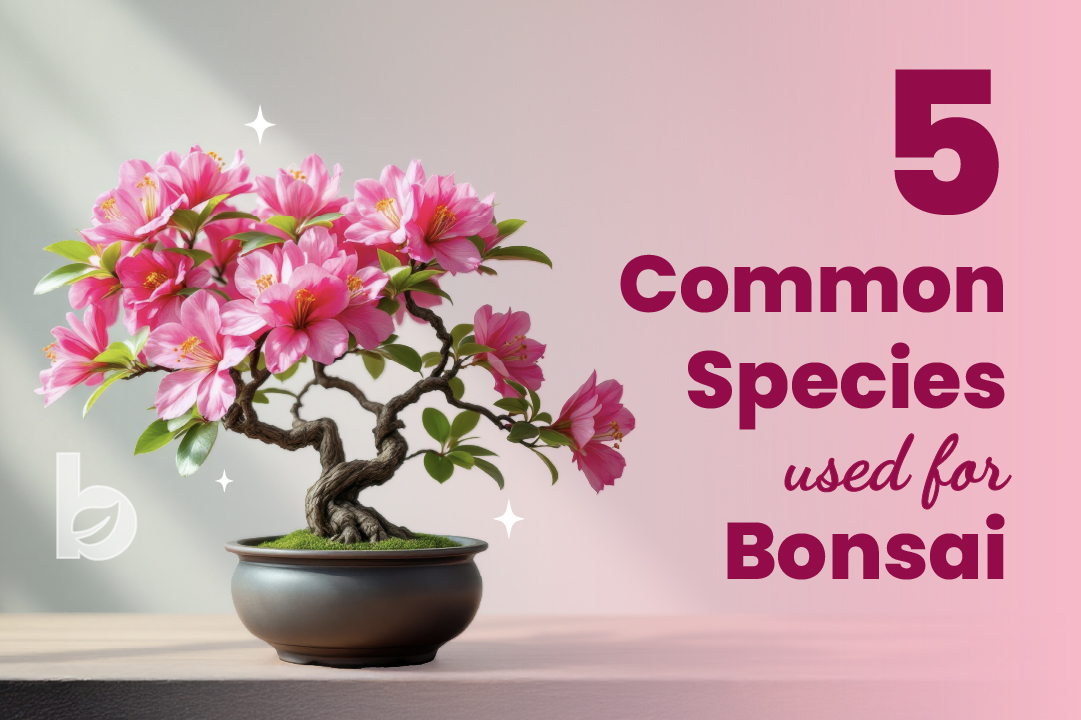
Bonsai trees have fascinated plant lovers for centuries, transforming ordinary trees into living works of art. Whether you're a beginner or an experienced bonsai enthusiast, choosing the right tree species is key to creating a stunning bonsai masterpiece. While many species can be trained into bonsai, some trees stand out due to their adaptability, resilience, and striking beauty.
If you’re looking to explore Japanese bonsai plants, this guide will introduce you to five of the most popular species used in bonsai cultivation. From the classic Ficus to the stunning Maple, these trees offer unique characteristics that make them perfect for bonsai styling.
1. Ficus Bonsai – The Beginner’s Favorite
Ficus is one of the most common choices for bonsai lovers, especially for those who are just starting out. This tropical evergreen is known for its thick, glossy leaves, aerial roots, and easy-care nature.
Why Choose Ficus for Bonsai?
- Hardy & Adaptable: Ficus trees thrive in both indoor and outdoor conditions, making them a versatile option.
- Drought-Tolerant: They can withstand occasional lapses in watering, perfect for those with a busy schedule.
- Aerial Roots: Many Ficus varieties develop aerial roots, giving the bonsai a dramatic and ancient look.
Ficus trees are forgiving when it comes to pruning and shaping, allowing beginners to experiment with different bonsai styles without worrying about harming the plant. If you’re looking for a low-maintenance Japanese bonsai plant, Ficus is an excellent choice!
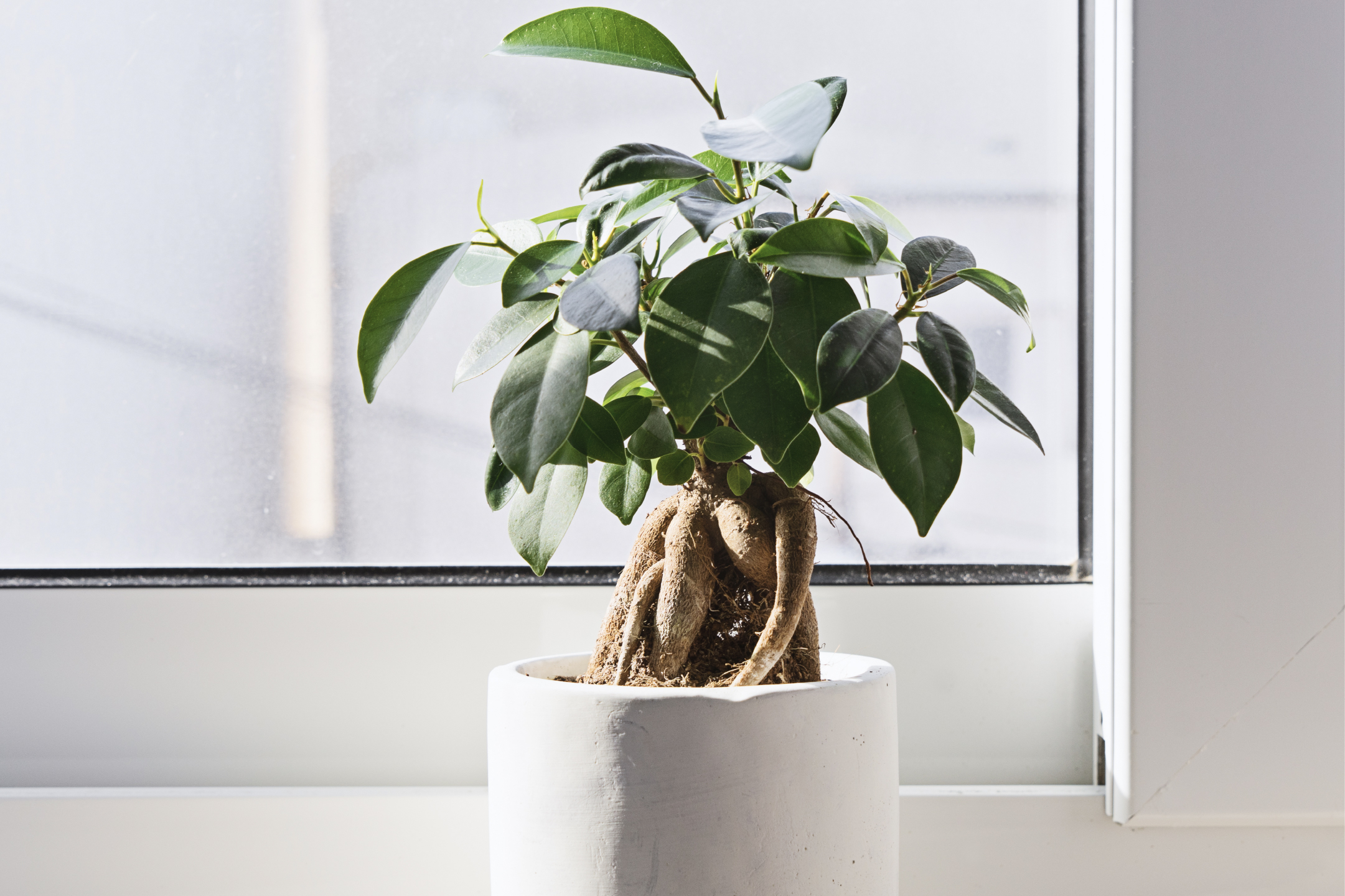
2. Juniper Bonsai – The Classic Evergreen
Junipers are among the most iconic bonsai trees, commonly associated with traditional Japanese bonsai plants. They are famous for their needle-like foliage, rugged bark, and the ability to be trained into various bonsai styles.
What Makes Juniper a Great Bonsai?
- Outdoor Resilience: Junipers prefer being grown outdoors, thriving in bright sunlight and fresh air.
- Shaping Potential: Their flexible branches make them ideal for intricate bonsai styling, including cascade and windswept styles.
- Aged Look: Juniper bonsai trees naturally develop shari and jin (deadwood features), adding an artistic touch to their appearance.
However, it's important to remember that Junipers should never be overwatered, as they are susceptible to root rot. With proper care, this evergreen bonsai tree can live for decades!
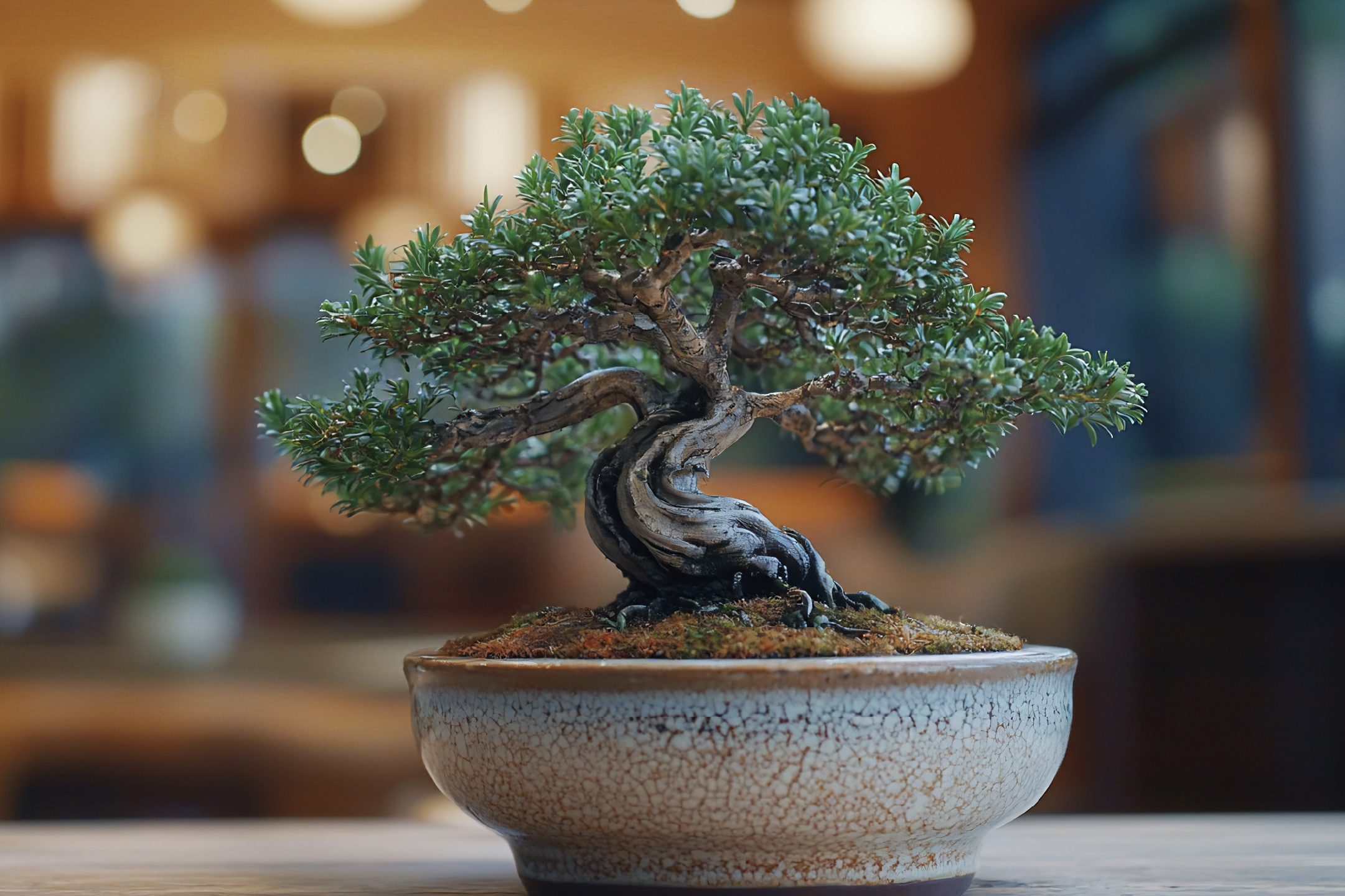
3. Maple Bonsai – A Seasonal Beauty
If you love trees that change color with the seasons, then the Japanese Maple (Acer palmatum) is a dream come true. With its delicate, serrated leaves and vibrant red, orange, or yellow foliage in autumn, this bonsai tree is a showstopper.
Why Bonsai Enthusiasts Love Maple Trees?
- Striking Seasonal Changes: The foliage transforms dramatically throughout the year, making the tree look different in every season.
- Fine Branching Structure: Their delicate branches add a graceful, artistic touch.
- Fast Growth: Maple trees grow quickly, making them exciting to shape and train.
Maples prefer cool climates and partial sunlight, making them best suited for outdoor bonsai gardens. Regular pruning helps maintain their delicate form, ensuring they remain compact yet elegant.
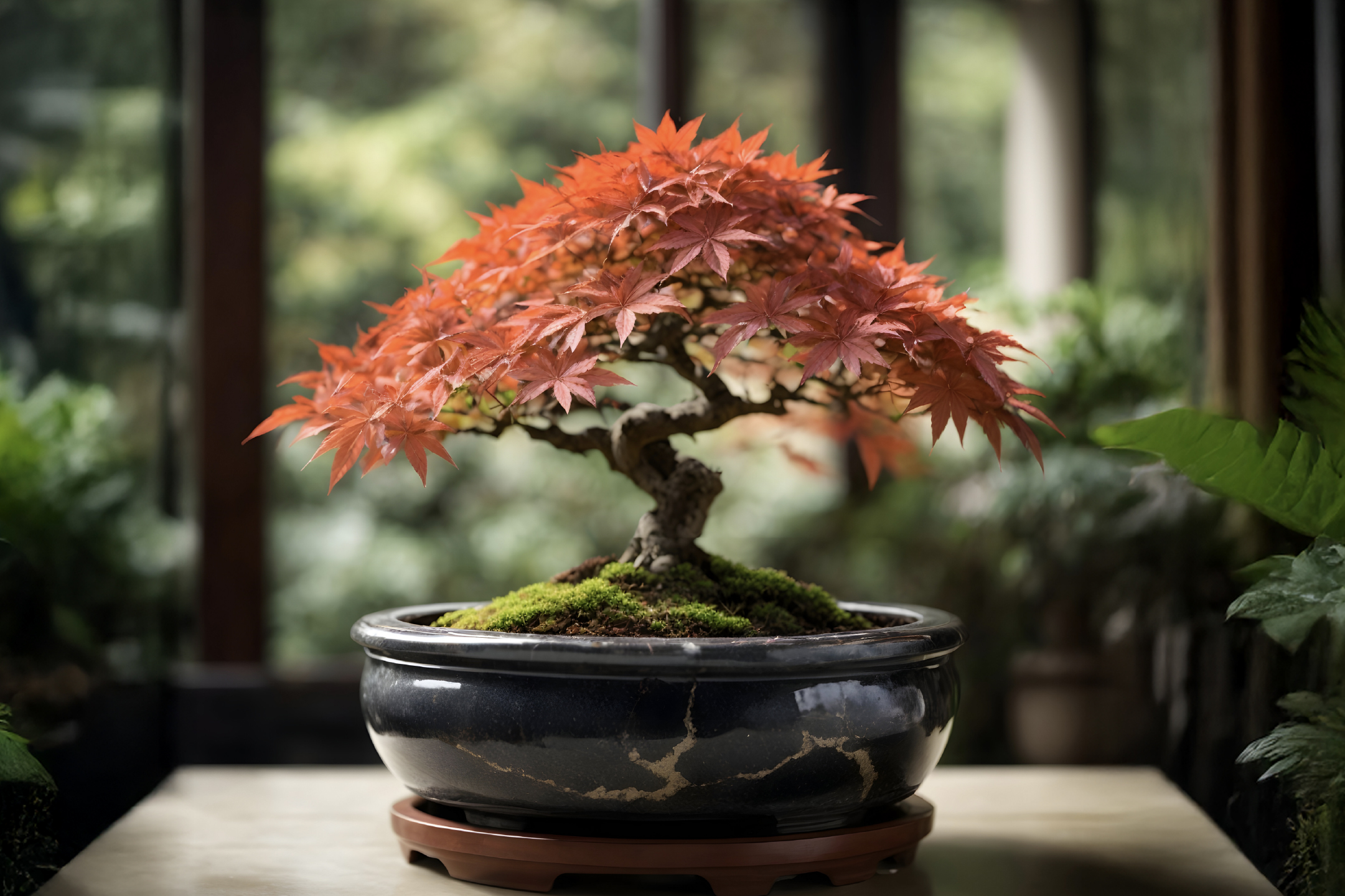
4. Pine Bonsai – The Symbol of Longevity
Pine trees are deeply connected to Japanese bonsai traditions, symbolizing strength and longevity. They are well-suited for bonsai because of their sturdy structure and ability to withstand harsh conditions.
What Makes Pine Trees Special for Bonsai?
- Evergreen Beauty: Their needle-like leaves stay lush throughout the year, providing a sense of permanence and stability.
- Traditional Bonsai Styles: Pines work beautifully in formal upright, slanting, and literati styles.
- Long Lifespan: With proper care, a Pine bonsai can live for several decades—or even centuries!
Regular pinching and pruning of new growth (candling) helps maintain the compact and refined look of Pine bonsai. If you're drawn to the ancient aesthetics of Japanese bonsai plants, a Pine bonsai is a perfect choice.
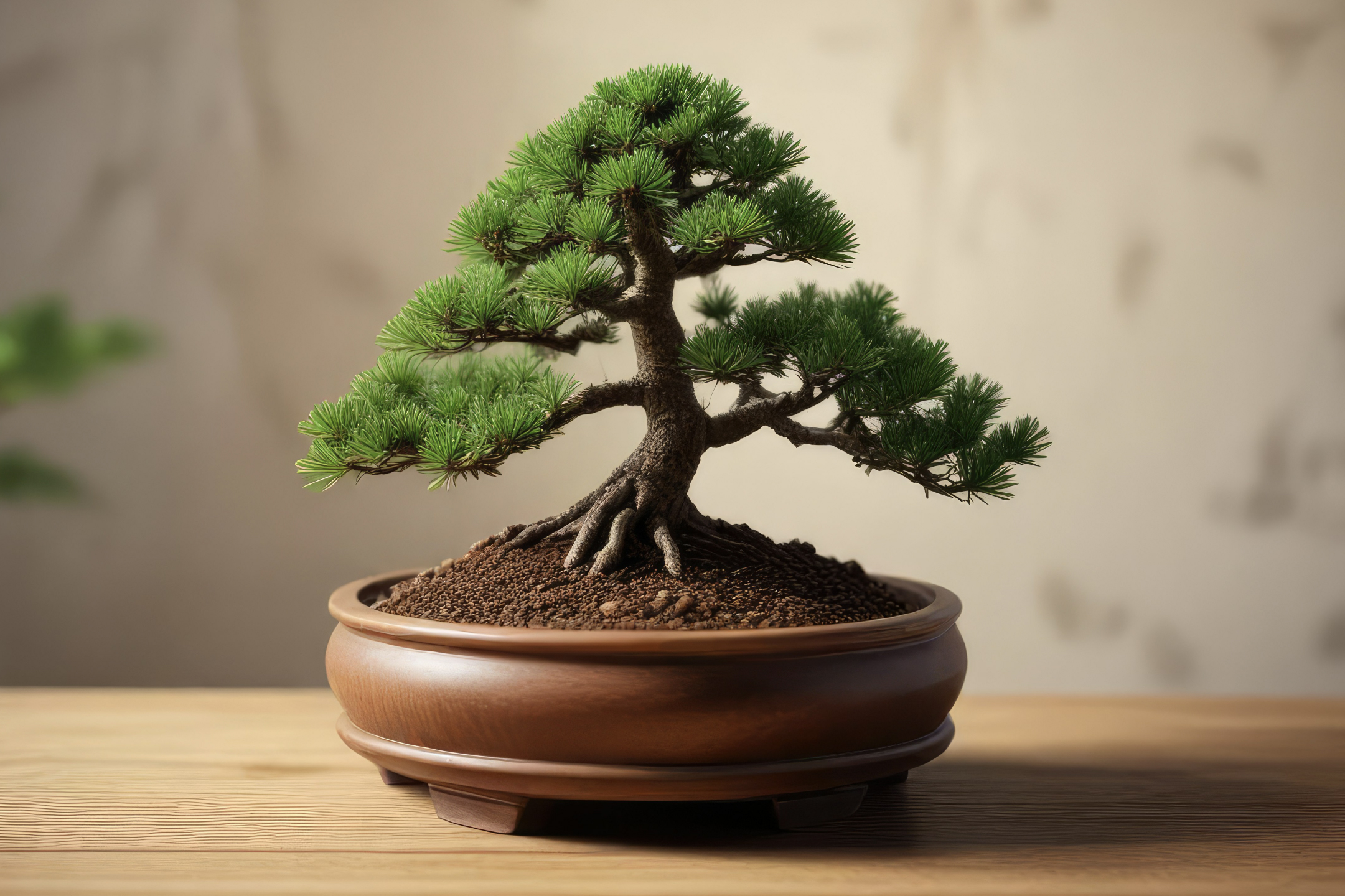
5. Azalea Bonsai – The Flowering Marvel
For those who love blooming bonsai, the Azalea bonsai is a stunning choice. Known for its vibrant flowers in shades of pink, red, white, and purple, this bonsai species brings a burst of color to any collection.
Why Azalea Bonsai Stands Out?
- Spectacular Blooms: In spring, the tree explodes with colorful blossoms, making it one of the most visually appealing bonsai.
- Compact Growth: Azaleas naturally grow into a bushy, compact form, ideal for bonsai styling.
- Acid-Loving Plant: They thrive in slightly acidic soil, requiring careful watering and fertilization.
Azaleas need good airflow and indirect sunlight to maintain their health and flower production. With proper care, they offer an exquisite display of flowers every year!
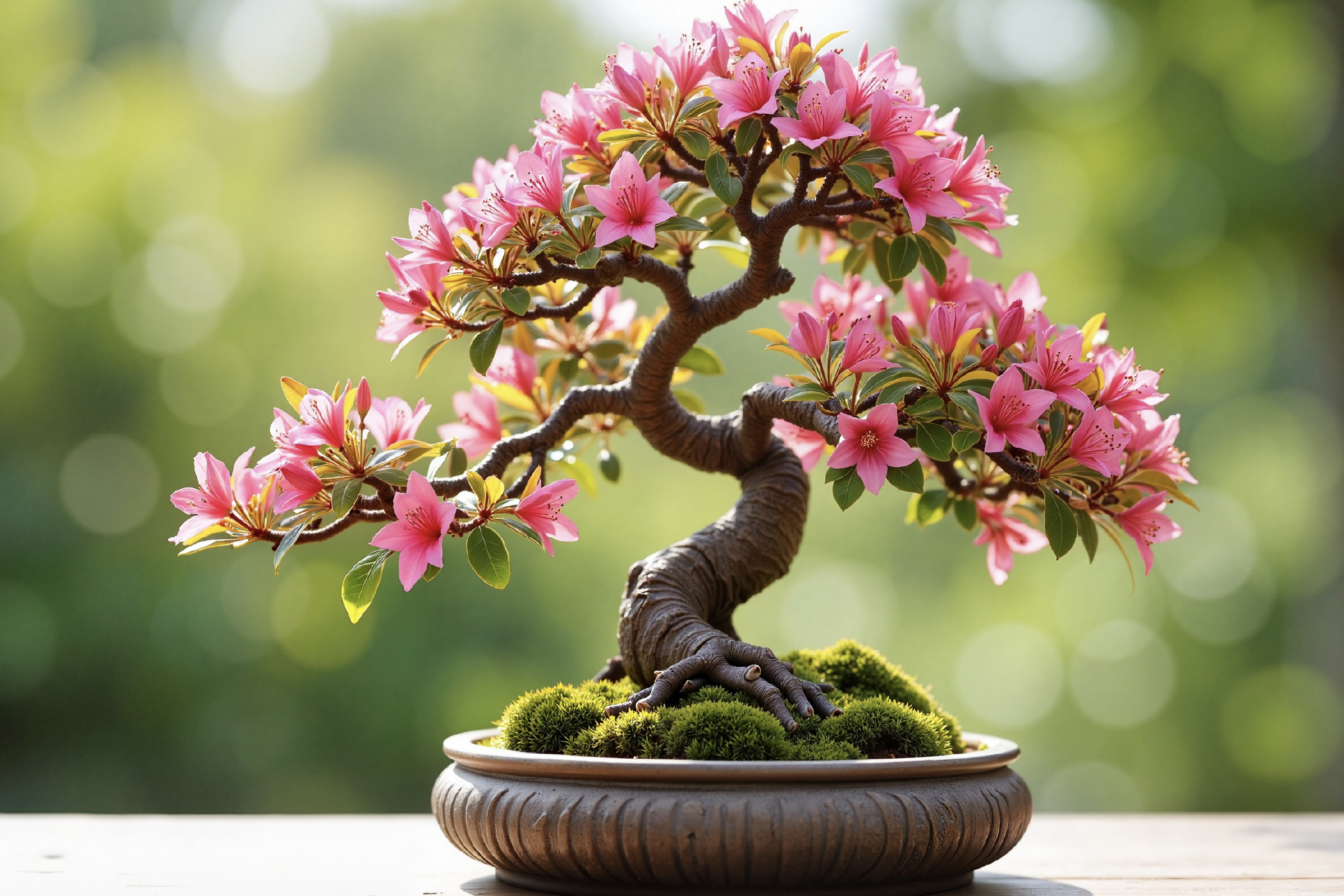
FAQs
1. What is the best bonsai tree for beginners?
Ficus is considered one of the best beginner-friendly bonsai trees due to its hardy nature, adaptability, and low maintenance requirements.
2. Can Japanese bonsai plants be grown indoors?
Yes, but it depends on the species. Ficus bonsai adapts well to indoor conditions, while Junipers and Pines prefer outdoor settings with natural sunlight.
3. How often should I water my bonsai tree?
Watering frequency depends on the tree species and climate. Generally, it's best to water when the topsoil feels slightly dry rather than on a fixed schedule.
4. How long do bonsai trees live?
With proper care, bonsai trees can live for decades or even centuries, becoming valuable heirlooms passed down through generations.
Final Thoughts
Bonsai cultivation is an art of patience, creativity, and dedication. Whether you're drawn to the timeless beauty of Pines, the seasonal magic of Maples, or the vibrant blooms of Azaleas, each species brings something unique to the table. If you're just starting your journey into Japanese bonsai plants, choosing the right tree will make all the difference.
Looking for a Bonsai?
Elevate your space with the timeless charm of DeHaat Bageecha’s Ficus Bonsai—a perfect blend of beauty and simplicity. Whether you want to enhance your indoor garden, add a refreshing touch to your home decor, or bring a sense of tranquility to your workspace, this bonsai is just what you need.
With its graceful structure and easy-care nature, it’s an excellent choice for both beginners and seasoned plant lovers. Let this exquisite bonsai turn your surroundings into a serene green retreat.
Bring home your Ficus Bonsai today—visit DeHaat Bageecha now!



